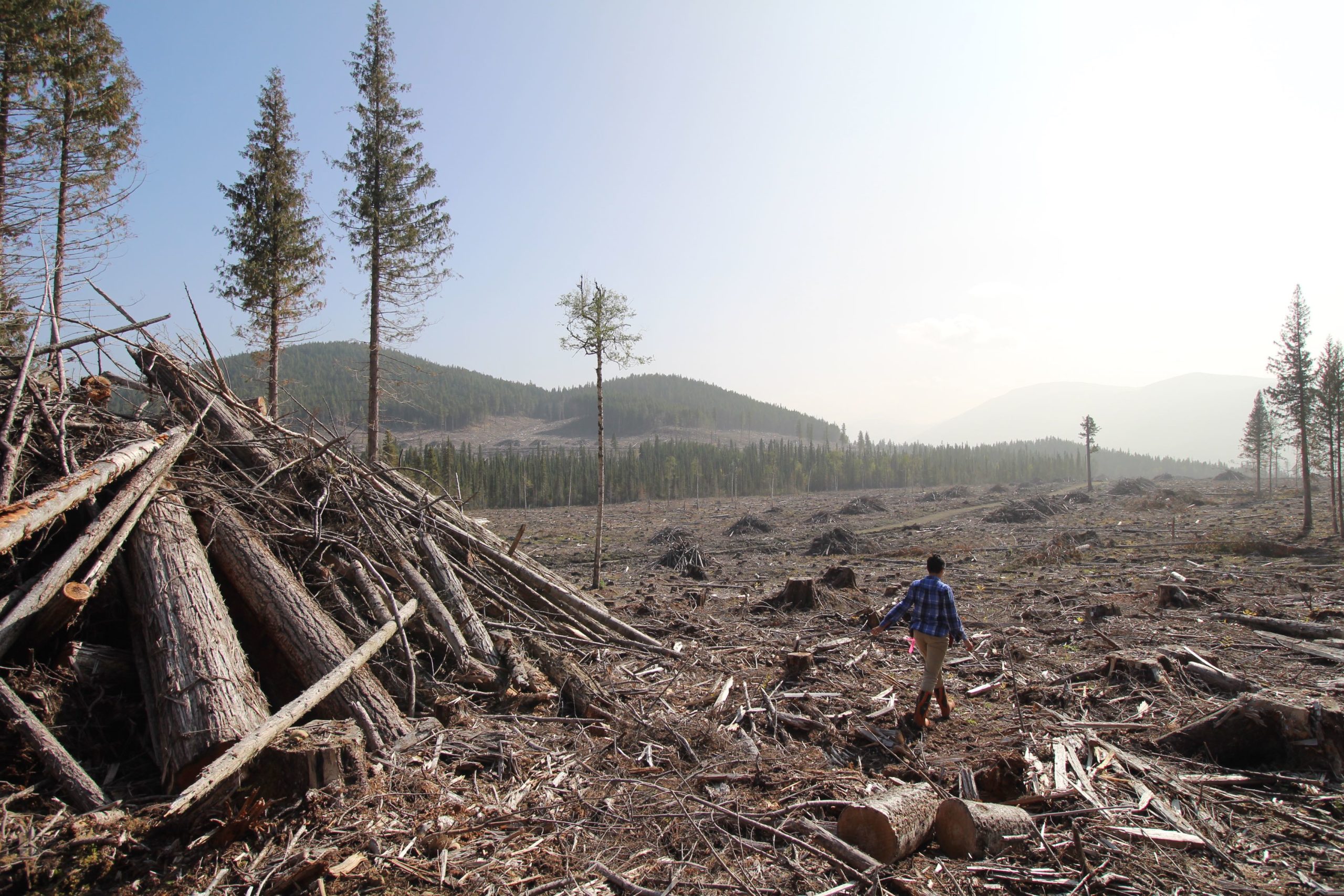Korean and Japanese civic groups urge President Moon and Prime Minister Kishida to end support for biomass
Media Release: Korean and Japanese civic groups urge President Moon and Prime Minister Kishida to end support for biomass

October 21, 2021
Despite enhancing their climate goals, Japan and South Korea are increasingly burning forest biomass for electricity, devastating forest ecosystems and carbon sinks globally, environmental groups point out. Advocates delivered a joint statement demanding the two countries’ governments shift away from the unsustainable fuel source.
As Japan and South Korea head to the COP26 climate change summit in a week, environmental groups from both countries urged for the end of large-scale biomass given its impacts on greenhouse gas emissions and forest ecosystems in a briefing organized by Solutions for Our Climate (SFOC), Global Environmental Forum (GEF), Mighty Earth, Biomass Industrial Society Network (BIN), and Korea Federation for Environmental Movements (KFEM).
“We are very concerned about the massive increase in demand by Korea and Japan for forest biomass and the impacts this is having on the health of forests in Canada, the Southeastern United States, Vietnam and beyond,” said Roger Smith, Japan Director for Mighty Earth, at the briefing on Thursday. This day kicked off the International Day of Action on Big Biomass, where groups in Australia, Europe, North and South America, Africa, and Asia highlighted biomass’s deforestation, climate, and biodiversity impacts through various campaign actions and events.
“Burning forest biomass to make electricity also worsens climate change by releasing stored carbon into the atmosphere, so we urge both countries to stop building more biomass power plants and apply strict greenhouse gas emissions limits to existing biomass-burning power plants,” Smith added.
In South Korea, electricity from biomass increased more than 75 percent annually between 2012 and 2019. Such growth has led to over 3 million tons of wood pellet imports and a dramatic increase in domestic wood pellet production. Similarly, Japan saw an increase in imported wood pellets from 72,000 tons to 2 million tons per year between 2012 and 2020.
Soojin Kim, senior researcher at SFOC, noted that Renewable Energy Certificates for biomass are main drivers of its rapid growth in Korea: “Biomass in Korea currently receives duplicate subsidies from both the energy and forest sectors, and support for biomass limits the development of renewables like solar and wind.”
Referring to data submitted to National Assembly Member Soyoung Lee by Korea South-East Power Co., Kim also expressed concerns about the sustainability of biomass: “Air pollution and carbon emissions per unit of energy from biomass are higher than for coal. Local residents are opposing construction plans of biomass power plants.” Kim added that both imported biomass and domestic pellets are often sourced from unsustainable forestry practices, such as clear cutting.
Miyuki Tomari from Biomass Industrial Society Network (BIN) explained that similar to Korea, the current institutional support in Japan promotes power generation using imported biomass: “Imported biomass does not lead to Japan’s energy self-sufficiency, has limited benefits for local communities, and tends to have higher lifecycle greenhouse gas emissions.”
In a joint statement presented at the briefing, the environmental groups urged Prime Minister Kishida Fumio of Japan and President Moon Jae-In of South Korea to implement renewable energy policies that protect forests before the upcoming COP26 summit. They called on the leaders to ensure that “all types of renewable energy contribute to near-term emissions reductions, and to show strong political commitments on forests and land-use through actions such as halting deforestation by 2030.”
“Importing over five million tons of biomass together a year, Korea and Japan are among the largest bioenergy importers. However, while the international community is accelerating the move to end unsustainable biomass, Korea and Japan are bucking this trend,” said Hansae Song, research associate at SFOC. “In order to avoid the stigma of being ‘biomass climate villains,’ and of course, to actually achieve 2050 carbon neutrality, it is urgent that the two governments change their renewable energy policies.”
For media inquiries, contact:
Roger Smith, Japan Director, Mighty Earth [email protected]
Euijin Kim, Communications Officer, Solutions for Our Climate, [email protected]
A recording of the briefing is available here:
[embedyt] https://www.youtube.com/watch?v=Zc3j_-AIK9c&start=131&vol=0&width=840&height=473[/embedyt]
The full NGO statement is available here:
Japan-South Korea NGO Statement on Biomass

